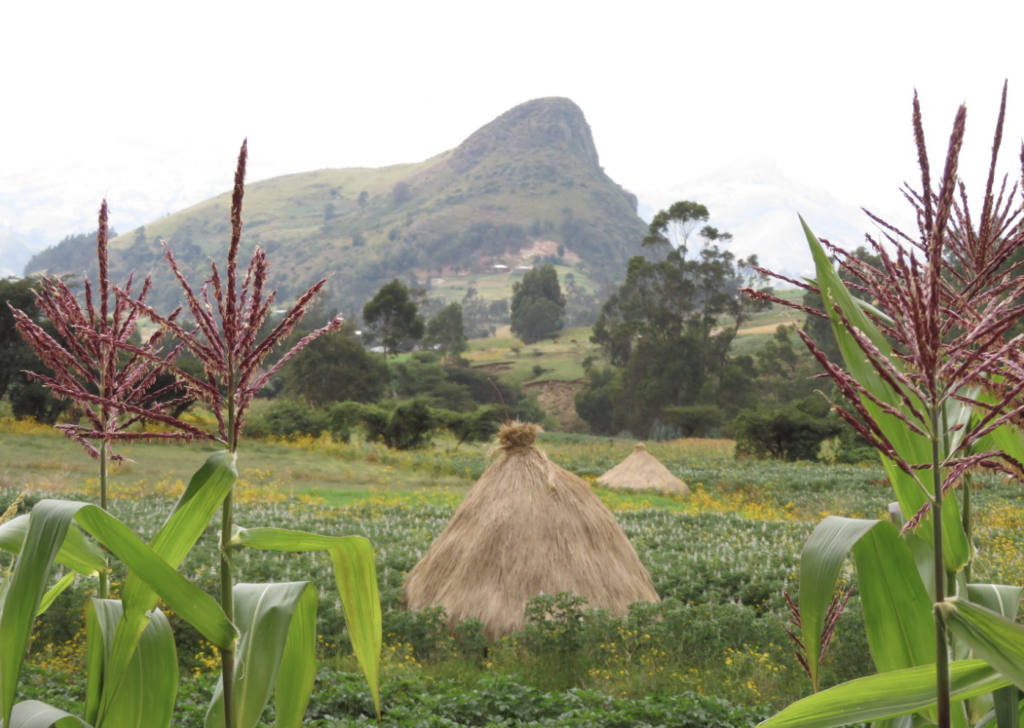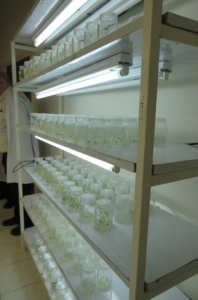
In the Amhara Region of northwest Ethiopia, the majority of farmers practice traditional subsistence farming methods. While these practices are steeped in local culture and tradition, potato growers in this region are facing a multitude of challenges.
Colorado State University alumnus Charlie Higgins is the founder of the Ethiopian Sustainable Food Project, an organization that has helped build a lab, storage facilities and greenhouses in the Amhara Region to keep the farming community sustainable.
Established in 2008, the Ethiopian Sustainable Food Project with the Amhara Regional Agricultural Research Institute currently encompasses a potato tissue culture lab, screened greenhouses for seed potato production, on-farm seed storage facilities, and solar dehydrators for drying potatoes. The ESFP also provides workshops for farmer families of the region, providing nutrition information and information about improved disease-resistant varieties.
For potato growers, following traditional subsistence farming methods creates a prime opportunity for pathogens to attack the crop. Carolyn Keller, an employee at CSU’s San Luis Valley Research Center and tissue culture specialist for the Colorado Certified Potato Growers Association recently visited Ethiopia with Higgins to aide in lab education.
“Potatoes are currently grown by 80,000 farmers in the Amhara region, most of whom are trying to provide food for their family on 1- to 2-acre farms,” Keller said. “They are using traditional, local varieties that are not as productive or disease-tolerant as newer varieties that are available in other parts of the world. The seed for next year consists of saving tubers from last year’s crop — disease and all, year after year. Storage of potatoes has largely been done by simply leaving them in the ground until they’re needed, resulting in a loss of up to 50% of the crop due to ants and tuber moths.”
 Providing advice
Providing advice
Keller said that her specific goals in Ethiopia were to educate lab personnel on the protocol for cleaning virus from tissue culture material, introduce the method of starting potato tissue culture from a sprout vs. a leaf cutting and improve the general efficiency of the lab.
“We also took as many supplies as we could handle as one of their real problems is how to pay for and get materials into the country,” she said.
Keller said she continues to provide advice to the lab and help them order needed materials. The Colorado Certified Potato Growers Association has given Keller time off to provide technical help to the project.
Higgins and his wife were Peace Corps volunteers in Ethiopia from 1969-1971. Upon returning to the United States, Higgins worked as a potato farmer for many years, but he and his wife always returned to visit Ethiopia.
As droughts are becoming more frequent and lasting much longer, Higgins realized there was a need for a sustainable food system in the country. Thus, in 2008, the Ethiopian Sustainable Food Project was born. Many U.S. potato farmers continue to contribute funds to the project in order to provide these services.
Ethiopian Sustainable Food Project
Learn more about the ESFP at ethiopianfoodproject.org.